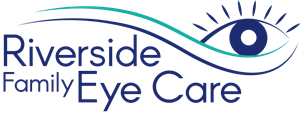 Vision plays a critical role in every student’s ability to learn and perform well academically — regardless of age. Undiagnosed vision problems can manifest as difficulties in reading, writing, and other educational activities, potentially affecting overall academic performance and confidence.
Vision plays a critical role in every student’s ability to learn and perform well academically — regardless of age. Undiagnosed vision problems can manifest as difficulties in reading, writing, and other educational activities, potentially affecting overall academic performance and confidence.
Unfortunately, there are too many cases where a child or student is labelled slow because their vision hinders their performance at school. At Riverside Family Eyecare, we emphasize the importance of regular eye exams to ensure that students of all ages have the visual skills they need to succeed.
Visual Requirements for School-Age Children
- Visual Acuity: Clear vision is essential for reading and learning. Kids with poor visual acuity may struggle to see the board or read textbooks, leading to academic challenges.
- Eye Coordination: Proper eye coordination is necessary for activities like reading and playing sports. Children with coordination issues may experience double vision or difficulty tracking moving objects.
- Focusing Ability: The ability to quickly and accurately change focus from near to far objects is crucial, especially for tasks like copying notes from the board and reading.
- Depth Perception: Accurate depth perception is important for activities that require hand-eye coordination, such as sports and certain classroom activities.
- Peripheral Vision: Good peripheral vision helps children be aware of their surroundings, which is important for safety and social interactions.
Visual Requirements for College Students
- Sustained Focus: College students often engage in long periods of reading and computer use. Sustained focus is essential to avoid eye strain and maintain productivity.
- Reading Speed and Comprehension: Efficient reading skills are crucial for managing heavy reading loads. Poor vision often slows reading speed and comprehension, affecting overall academic performance.
- Computer Vision: Extended computer use can lead to digital eye strain, which includes symptoms like headaches, dry eyes, and blurred vision. Proper vision care can help manage and prevent these symptoms.
- Night Vision: Many college students study late into the night. Good night vision is important for maintaining productivity and reducing eye strain in low-light conditions.
- Peripheral Awareness: For college students, especially those involved in sports or driving, good peripheral vision is essential for safety and performance.
How Vision Affects Academic Performance
Uncorrected vision problems can have a significant impact on a student’s academic performance. Children who struggle with their vision may experience:
- Difficulty Reading: Blurred vision or eye coordination issues can make reading challenging, leading to poor reading comprehension and slower learning.
- Attention Issues: Vision problems can cause children to lose focus easily, often being mistaken for attention-deficit disorders.
- Headaches and Eye Strain: Undiagnosed vision problems can lead to frequent headaches and eye strain, making it difficult for students to concentrate on their studies.
- Lowered Self-Esteem: Struggling academically due to vision issues can affect a child’s confidence and willingness to participate in classroom activities.
The Importance of Regular Eye Exams with Riverside Family Eyecare
Regular eye exams are crucial for detecting and addressing vision problems early. At Riverside Family Eyecare, we recommend that children have their first eye exam at six months old, another at three years old, and then annually once they start school. College students should also have annual exams to monitor and maintain their vision health.
By scheduling regular eye exams, parents can ensure that their children have the best possible vision to support their academic and extracurricular activities. Our comprehensive eye exams at Riverside Family Eyecare include assessments for common childhood vision problems and provide personalized recommendations for treatment and vision care.
